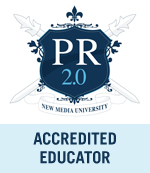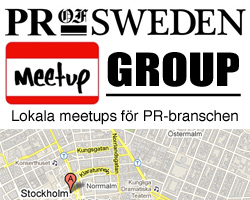Sometimes I hear that social media policies and guidelines are unneccessary. The sentiment is fair; they mean that social media should not be separated like that. We do not have separate guidelines for television, press, radio and other means of mass communication, except for designated spokespersons at the most, right?
Wrong. Social media is participatory for all - traditional television, press and radio is not. And this makes social media different. It scales socially, not technically.
Organization’s today have to believe that employees are powerful brand ambassadors and important sources of feedback. (If they are not, then start from there!) Organizations are facing a transparent future; not just transparency for technical reasons, but transparency because it makes for better business for organizations with sound operations and outputs.
From a Swedish perpsective, I would say that many organization’s have made tremendous progress in very little time. Sure, some organizations still forbids their employees certain forms of digital socializing on-the-job, but “transparency” as an idea is more and more commonly accepted - even if the roadmap to transparency is somewhat foggy for most.
But then what? I think Deirdre Breakenridge makes very solid points with her posed questions in the video below. If you indeed have a transparent organization and sound policies and guidelines, will your employees express themselves? Will they be “brand champions” now that their employers have accepted and embraced transparency?
Personally, I often emphasize the importance of finding and engaging your organisation’s social media naturals. These individuals exist also within organisations, and actually, from an early-bird perspective, it is these remarkable individuals who actually stands a chance in creating the engagement levels your organization so desperately need. They are the ones who can can get close enough in this (never-ending?) era of corporate information carpet bombings.
As human beings, we are first and foremost interested in ourselves and other human beings. But that is a simplification; we are in an exponential way more interested in remarkable individuals rather than boring ones. Still, many organizational representatives are extremely boring on the web. You do not have to accept the role of the glossy entertainer, but the art of being relevant might in fact be a large part of the PR-industry’s future business model.
Remember Dunbar’s number and the 90-9-1 rule? The social web might be a pluralistic revolution, but it is the passionate and remarkable few who actually rewires the web as they see fit. As spectators, we can not possibly take interest in everyone, so we choose carefully which individuals to include in our non-scalable circles.
That is why I stress the natural tonality as opposed to the sales pitch mentality. In other words, whenever there is a need for higher engagement in different social web activities: Ask not what the community can do for your organization, ask what your organization can do for the community.
P.S. Speaking of communities, have you joined the the PR of Sweden web community yet? We are already a great group of sharing individuals engaged in conversation - join us and contribute!
Similar posts:
- Mediesök “PR of Sweden”
- Brian Solis om Brian Solis
- Hyper Island söker Community Manager
- Blaise Grimes-Viort: The Role of the Community Manager in Your Organisation
- Mer om utbildning till webbredaktör och community manager

 Follow @DoktorSpinn on Twitter
Follow @DoktorSpinn on Twitter











